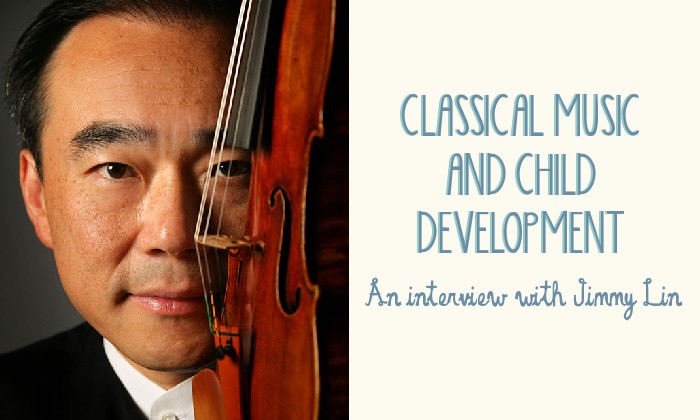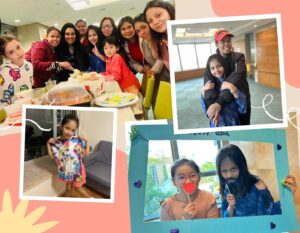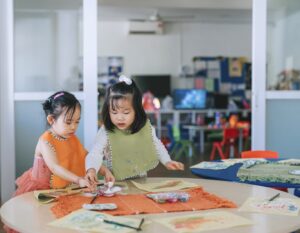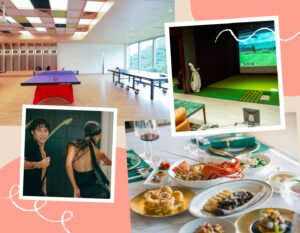
Jimmy Lin sheds some light on the positive effects classical music has on child development
Jimmy Cho-Liang Lin is renowned for his eloquent violin performances all over the world and has had two Grammy Award nominations. In addition to his beautiful performances and numerous achievements, Jimmy continues to pave and promote music for young individuals through his roles as the Artistic Director at Premiere Performances of Hong Kong and the National Taiwan Symphony Orchestra’s Youth Music Summer Camp. Throughout his career, he has taught classical music in both Asia and the US and has seen the effects classical music has on his students.
As the Artistic Director at Premiere Performances of Hong Kong,Jimmy continues to facilitate a musical environment in Hong Kong. Premiere Performances is a charity organization that aims to “bring the best classical musicians in the world to Hong Kong”, organising countless outreach programs every year for public, private and international schools. Ultimately Premiere Performances hopes to build a buzzing musical culture in Hong Kong, and to inspire a love of and a passion for music. Read on and find out Jimmy’s thoughts on what classical music can do for young minds…

What led you to join Premiere Performances?
Premiere Performances of Hong Kong founder and Executive Director, Andrea Fessler has a vision of enriching the musical lives of Hong Kong by adding the important element of chamber music into the mix. When she shared this vision with me, I was convinced this is one person who really cares about music and about the quality of life in Hong Kong. It has been a pleasure to direct the Hong Kong International Chamber Music Festival for the past 5 years.
When and why did you pick up the violin? At what age would you recommend others to pick up a musical instrument?
I began learning the violin when I was five. My next door neighbour and boyhood buddy started to learn the violin and I wanted to do exactly the same. I recommend kids start on a piano or violin sometime between the ages of four and eight.
In what way have you seen listening to classical music affect children’s development in terms of memory, emotion, and stress?
There is passive listening and engaged listening. If the music is only in the background, it does not make much of a difference. But it becomes effective when you play a piece a music and introduce it properly to a child so it becomes the child’s focal point. With many kids, it’s more fun to follow a story. Case in point, works like Peter & the Wolf or Carnival of the Animals can be enjoyable entry works for young kids. Disney’s Fantasia or Fantasia 2000 gets it right with a mixture of great music and great story-telling.
What do you think are the benefits of learning a classical music instrument?
Learning music helps a child’s ability to focus, to listen, to organise thoughts, to learn additional muscular movements and coordination, to have patience, and perhaps most importantly, the idea that if you practice well and work hard, you get the reward of playing your instrument better and better. That sense of work and reward is very beneficial.
Learning an instrument takes a lot of persistence and commitment, was there a time in your childhood when you felt less devoted to this pursuit?
It is perhaps unusual but I never lost any interest nor passion for music no matter how young I was. To this day, I love music just as much as 30 to 40 years ago.
In Hong Kong’s high-stress environment, learning an instrument can add to a child’s long list of after school activity and stress. How would you recommend for parents, children and teachers to approach learning an instrument as a positive activity?
The whole world is higher stress these days. We all want instantaneous results. The Internet has gotten us onto a super-fast pace. Learning music, I think, has a calming effect. It slows the pacing of daily life a bit. It enables a child to (hopefully) spend a period of time every day to focus on only one thing. If a child advances enough to join an orchestra or chorus, it affords healthy interaction among kids in an endeavour that is not just video games. Again, the incentive of hard work begetting improvement cannot be important enough. And the child must be consistent. The practice session must be daily in order to be effective.
What do you think of the belief that listening to Mozart at a young age can make your child smarter?
I think listening to Mozart makes everyone smarter.
Be sure to check out the International Chamber Music Festival, taking place between Wednesday, 20 January and Wednesday 27 January, mama! There are heaps of performances as well as free rehearsals, master-classes and lectures that are sure to inspire both your little ones and yourself.
 View All
View All











 View All
View All





 View All
View All


 View All
View All










